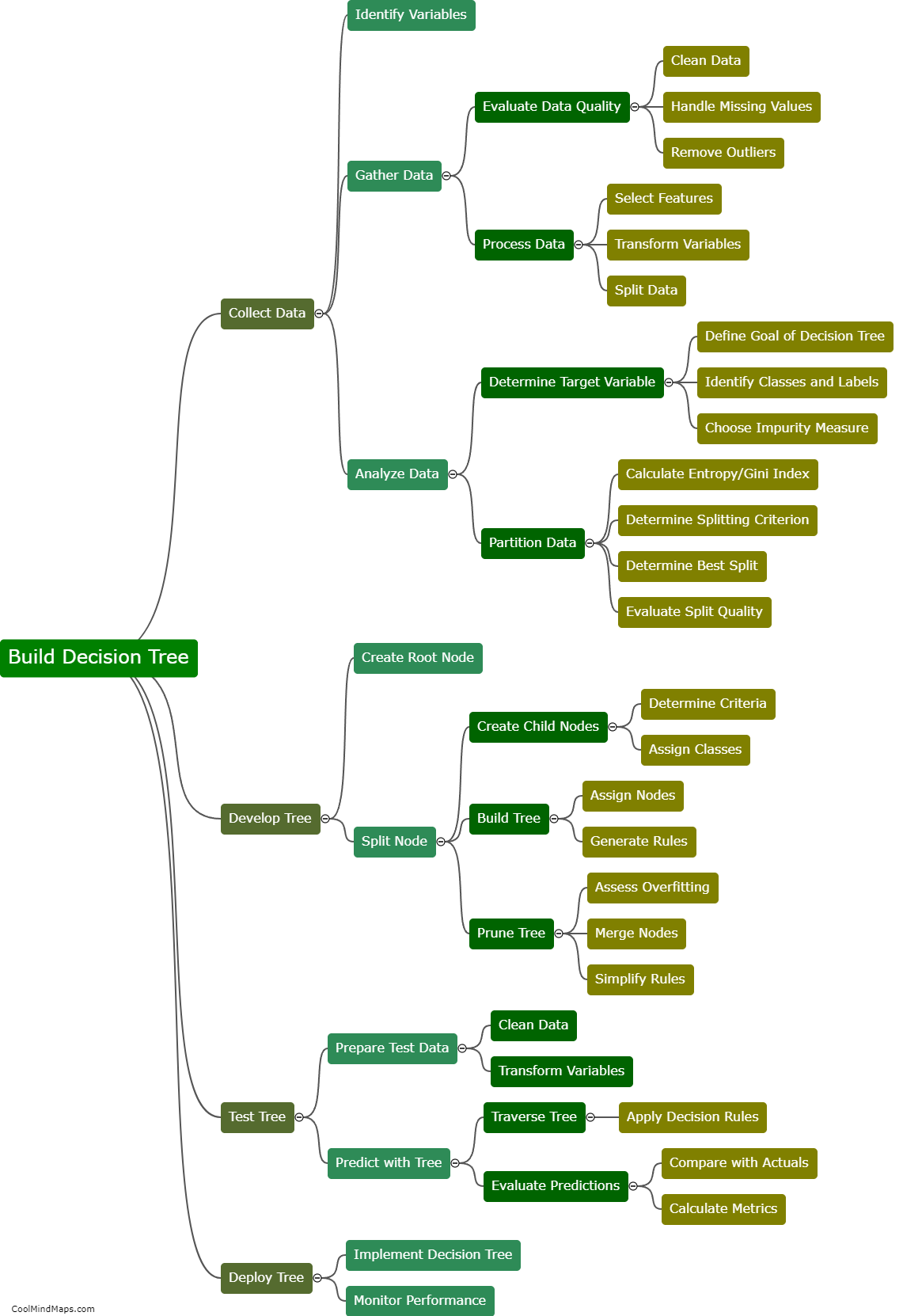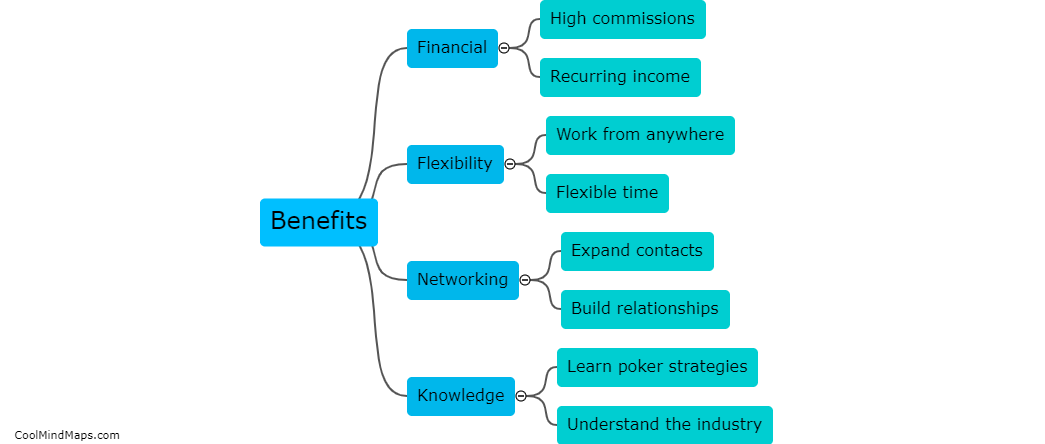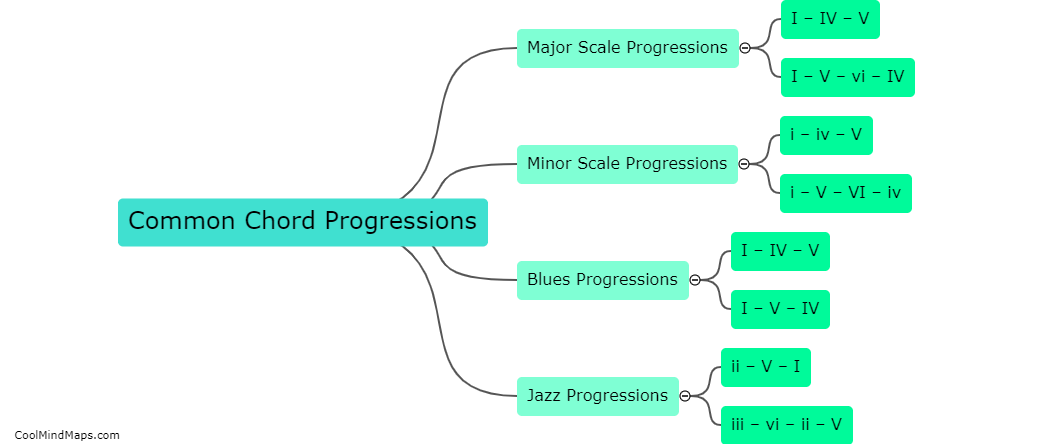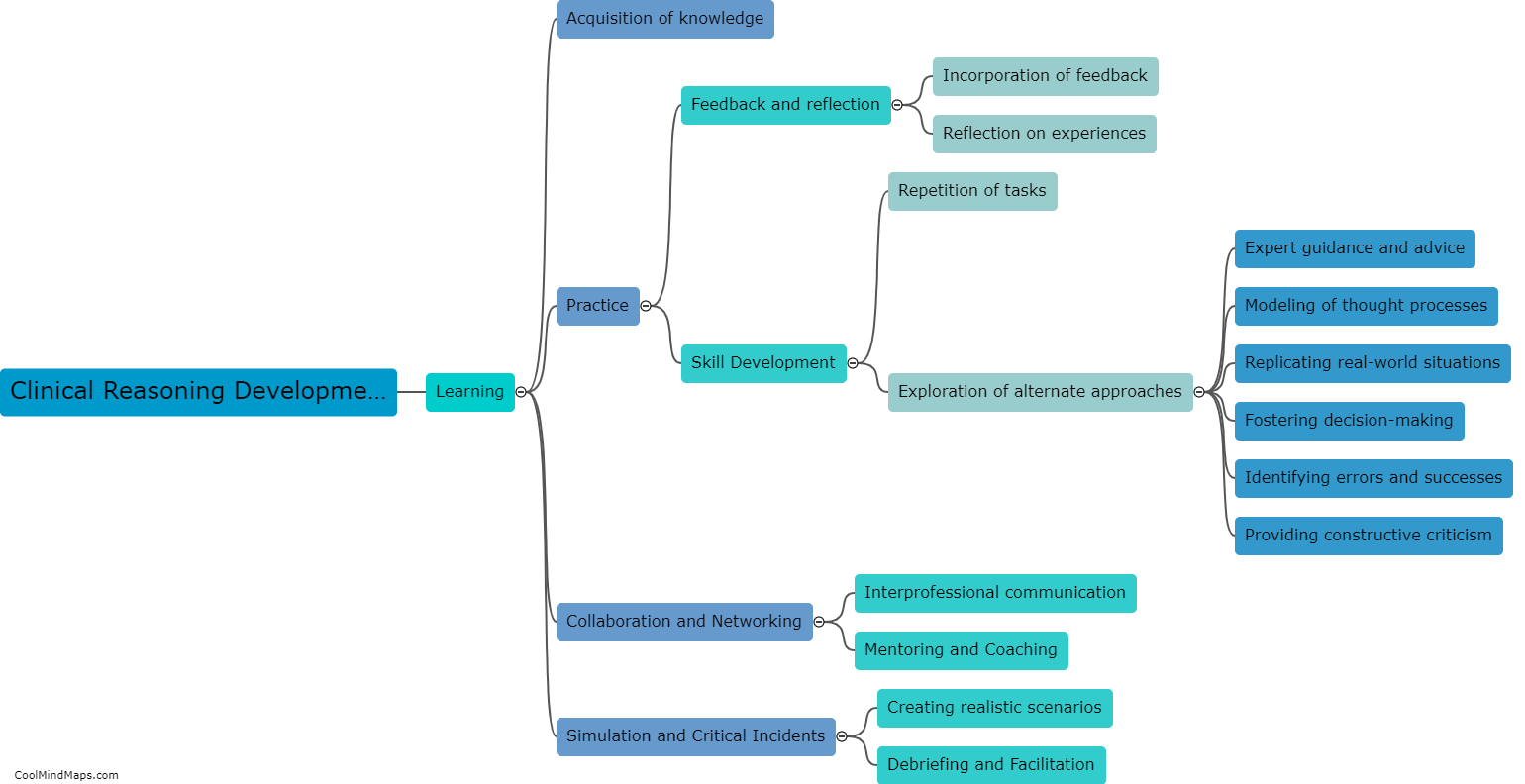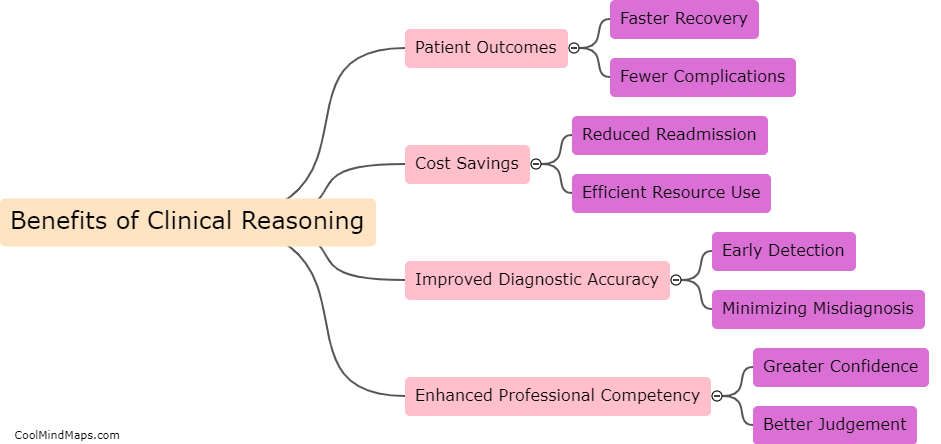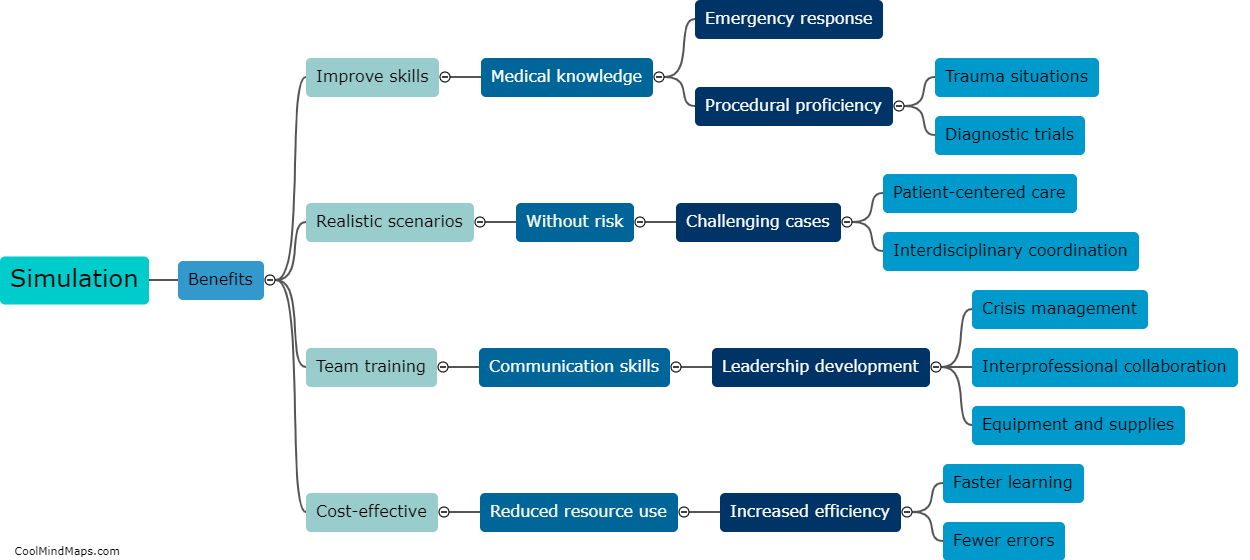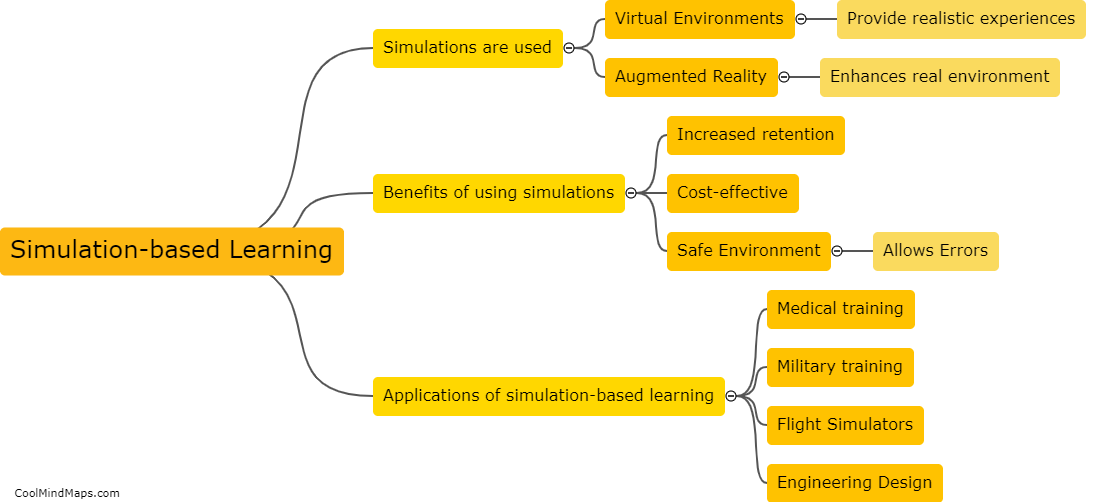How does simulation improve clinical reasoning?
Clinical reasoning involves using critical thinking and evidence-based practice to diagnose and treat patients. Simulation is a powerful tool that can be used to enhance clinical reasoning skills in healthcare professionals. By providing a safe and controlled environment to practice on anatomically accurate manikins, simulations allow healthcare professionals to develop and hone their decision-making skills, communication skills, and diagnostic skills. Simulations can replicate a range of scenarios and conditions, allowing healthcare professionals to experience different situations and learn how to adjust their decision-making processes based on patient responses. This type of training can help reduce medical errors, improve patient outcomes, and increase confidence among healthcare teams.

This mind map was published on 2 May 2023 and has been viewed 93 times.

